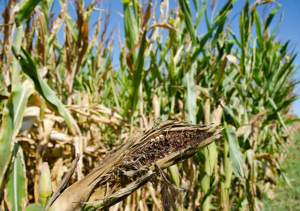
Farmers Affected by Drought Have Time to Replace Livestock
According to the Internal Revenue Service, farmers and ranchers affected by the huge drought in the United States have an extension to replace livestock and defer tax on gains made through forced sales. The crippling drought has affected 43 states, and currently stands as one of the worst droughts in U.S. history.
Many farmers and ranchers are forced to sell livestock because of serious droughts. In order to conserve water, they need to limit their herd while still trying to make a profit. In order to qualify for the deferment, the livestock usually needs replaced within four years, but the IRS has allowed an additional year.
The one-year extension and deferment applies to farmers who sold more livestock used for dairy, breeding, or draft purposes than usual because of the drought. Farmers who raise livestock for slaughter or sport do not apply for the extension.
Qualified farmers need to maintain the farm within a county, parish, city or district in a location the National Drought Mitigation Center (NDMC) declare as having “exceptional, extreme or severe” drought conditions for a whole week between September 1, 2011 and August 31, 2012.
The IRS reports that farmers and ranchers whose replacement period was set to expire at the end of the current tax year (generally December 31, 2012) now have until the same date in 2013. The extension mainly targets farmers that were affected by droughts in 2008 and are still affected by droughts since the normal extension is four years. The IRS announces that it will allow further extensions if the severe drought continues.
More information about the relief can be found on www.irs.gov under Notice 2012-62. Information about tax issues and reporting drought sales can be found under Publication 225, Farmer’s Tax Guide on the IRS’s website as well.
Source: Internal Revenue Service
Comments
Must Read
 Real Property Taxes Assessment
Real Property Taxes Assessment The real property tax rate is based and subsequently calculated on the value of real property.
 A Background of Inheritance Taxes
A Background of Inheritance TaxesInheritances taxes are either collected from an estate of from the individual that inherits from the estate.
 A Brief Guide to Real Property Tax
A Brief Guide to Real Property TaxThe real property tax is a major source of revenue for local and state governments.
 A Brief History of Tax Credits
A Brief History of Tax CreditsThe United States Federal tax credit system is maintained to provide leniency to taxpayers who are determined to merit such treatment by the government.
 A Brief Overview of Inheritance Tax
A Brief Overview of Inheritance TaxThe inheritance tax is imposed on the value of property an individual inherits.
 A Complete Guide on Inheritance Taxes
A Complete Guide on Inheritance TaxesInheritances taxes are either collected from an estate of from the individual that inherits from the estate.
 A Complete Guide to Consumption Taxes
A Complete Guide to Consumption TaxesThose items are usually goods and services provided for consumers.
 A Full Background on the IRS
A Full Background on the IRSThe Internal Revenue Service (IRS) is the prominent agency of the United States Federal Government, responsible for collecting taxes.
